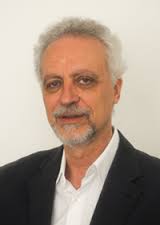Thu, 11/12/2015 - 10:37
 Mr. Léo Heller, special Rapporteur on the human right to safe drinking water and sanitation, talked to PF4WASH about issues such as government budget allocations to WASH, steps towards achieving SDG N. 6 and increasing tax revenue generation.
Mr. Léo Heller, special Rapporteur on the human right to safe drinking water and sanitation, talked to PF4WASH about issues such as government budget allocations to WASH, steps towards achieving SDG N. 6 and increasing tax revenue generation.
Mr. Heller, thank you for sharing your time and views with us!
1.You have a distinguished background in research around water and sanitation and are now the special rapporteur on the human rights to water and sanitation. Does the human right mean that water and sanitation must be free for all? Or is it more complicated than that?
Many thanks for the question! This continues to be one of the most frequently asked question relating to the human rights to water and sanitation, and I am happy to be able to provide a response!
The human rights to water and sanitation do not oblige States to provide water and sanitation for free – just as the right to food, or the right to health do not bring this obligation. But States are obliged to ensure that access to water and sanitation is affordable – and in human rights terms this is well defined. The amount paid by individuals and households may not compromise the individual or household’s ability to pay for realizing other human rights, including the rights to food, to housing, to health, and to education. Often therefore the state will need to put subsidies or other systems in place so that people living on low-incomes can afford all the costs associated with accessing water and sanitation. In those cases where people cannot pay, such as, for example, homeless people, those in detention centres or other State institutions or those living in extreme poverty, the State must ensure that adequate services are available, where necessary at no cost.
2) Government finance for water and sanitation remains at very low levels throughout the great majority of low-income countries in Africa, Asia and elsewhere. The situation is particularly extreme in the case of sanitation: over the last decade, few countries have made substantial own-resource investments in sanitation. Do you think inadequate government budget allocations to WASH are a major barrier to progress? Or do think that there are other more important barriers?
There are myriad barriers, and many of these are interrelated. Often, the problem is indeed the absolute amount of financial resources dedicated to sanitation services, and the result of this is exacerbated by lack of policies and planning, weak institutions and lack of qualified staff. Sanitation is not prioritised in many countries, and commitments made at the regional conferences are attempts to address this. Unfortunately, in many cases, the problem is compounded by the available resources being allocated for high cost systems that primarily benefit the better-off urban populations rather than people living in rural areas, or those living in slums. These are the barriers that we try to address in our work on implementing the human rights to water and sanitation. A rights-based approach prioritises poorest and most excluded people first, in order to fill the enormous gap that persists in most of the countries related to the access of the most advantaged populations compared to the most disadvantaged populations.
3) African ministers with responsibility for sanitation have committed to government finance allocation of 0.5% of GDP by 2020. Do you think this is feasible and realistic?
I believe that in order to reach the Sustainable Development Goal target on sanitation (6.2) governments must commit to substantially increasing the amount of resources devoted to water and, especially, sanitation, which is one of the most off-track targets of the MDGs – and must prioritise those who have no or inadequate access to these services. Governments where a large proportion of their population do not have access to adequate sanitation must also try to match this funding with grants and loans from other sources, whether bilateral funding or from INGOs or international agencies. However I cannot stress enough that it will not be sufficient to commit the funding without reviewing how those resources are spent.
4) Your own country is Brazil, which has made very significant progress towards universal water and sanitation coverage over recent decades. How important was government investment in achieving this progress?
Brazilian efforts to increase funding, institutional organization and capacity building in water and sanitation over the last few decades are well known and welcome. It is very important now to have a consistent public policy and to respect the long-term planning established, in order to ensure the continuity and the sustainability of the progress that has been made.
5) In your role as Special Rapporteur, do you feel that there are things you can do to encourage governments to increase tax revenue generation and allocation to water and sanitation?
I certainly believe that my role as Special Rapporteur, an independent position, gives me the opportunity of speaking out for not only that resources need to be allocated to water and sanitation, but also that governments have the obligation to ensure that these resources are spent on the realisation of the rights. How the resources are raised is dependent on each government’s own approach, but obviously taxes must be progressive – they must not hurt the poor more than the rich. Tax revenue, as we know is also only one way of funding water and sanitation services – there can also be effective ways of cross-subsidising services either between different user types (agricultural, industrial, domestic) and between richer and poorer users. My first report to the Human Rights Council addresses some of the mechanisms for revenue generation that can adopted without compromising the affordability of service provision.